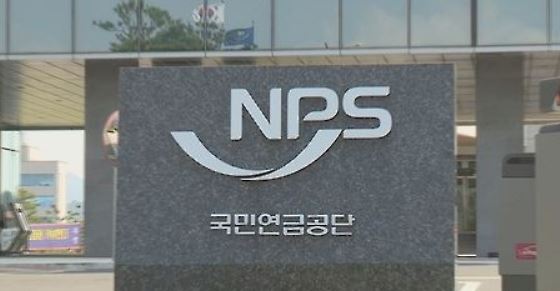[Hyundai Reform] Hyundai Motor reform a test for NPS
State fund faces critical choice on automaker’s spinoff plan; Hyundai refutes some proxy advisers’ opposition as misunderstanding market regulations
By Cho Chung-unPublished : May 16, 2018 - 16:39
Amid growing opposition against Hyundai Motor Group’s corporate restructuring plan, the state-run pension operator in South Korea found itself in a difficult position Wednesday, as it appears to have the final say on the fate of the carmaker.
The National Pension Service is the second-largest shareholder, with a 9.82 percent stake in Hyundai Mobis, an auto parts maker at the center of the carmaker’s restructuring plan.
The upcoming May 29 vote on Hyundai Mobis’ spinoff merger plan is a test for the NPS, which faced a barrage of public criticism over its ambiguous political neutrality regarding a 2015 Samsung merger, market insiders say.
“The NPS holds the key to Hyundai’s future,” said a market observer who declined to be named. “But the question is will it choose to become a defender of a Korean Inc. against foreign funds’ aggressive demands or will it follow the theoretical market principle that values every shareholder’s right regardless of their profit-oriented motives.”
The National Pension Service is the second-largest shareholder, with a 9.82 percent stake in Hyundai Mobis, an auto parts maker at the center of the carmaker’s restructuring plan.
The upcoming May 29 vote on Hyundai Mobis’ spinoff merger plan is a test for the NPS, which faced a barrage of public criticism over its ambiguous political neutrality regarding a 2015 Samsung merger, market insiders say.
“The NPS holds the key to Hyundai’s future,” said a market observer who declined to be named. “But the question is will it choose to become a defender of a Korean Inc. against foreign funds’ aggressive demands or will it follow the theoretical market principle that values every shareholder’s right regardless of their profit-oriented motives.”

The pension fund is at the center of attention, with Hyundai awaiting a vote on its plan to spin off lucrative after-sales and module divisions from Mobis and merge them with Hyundai Glovis, a logistics arm.
Last week, US hedge fund Elliott said it is against the plan, claiming it lacks business rationale and is unfair to shareholders. On Tuesday, two US proxy advisers, ISS and Glass Lewis, also urged investors to reject the plan, saying that it is engineered to benefit the interest of the company’s owner family members, not minority shareholders.
“The transaction presents an attractive opportunity for the controlling shareholder to lay the groundwork for resolving the circular ownership issues within the group and the related party concerns at Glovis, while retaining firm control over group companies,” ISS said in a report.
In a rare statement, Hyundai Motor defended the plan, claiming that ISS’ position has “a serious error” and is “misleading the market.”
“We regret deeply ISS’ decision made without a proper understanding of the capital market law, regulations on cross-shareholding structure and inter-affiliate trading,” the carmaker said in a statement.
“The group’s governance restructuring is a plan to benefit the interests of Mobis shareholders, on the contrary of ISS’ claim.”
Amid clashing ideas on the nature of the plan, the NPS remained silent, but said it would go through clear decision making procedures before exercising votes.
“The case will be discussed at a vote-exercising committee within the asset management division of NPS,” said an official at the NPS. “If the committee finds it difficult to make a decision, the case will then be discussed by an independent committee.”
The committee consists of nine experts, based on recommendations by the government, academia and subscribers, according to the Welfare Ministry that supervises and controls the operation of the NPS.
The pension operator holds a casting vote, as its 10 percent stake in Mobis would be enough for Hyundai to defend against opposition from foreign investors that hold nearly half of the shares of the parts maker.
In order for the plan to be approved at the shareholders meeting later this month, the parts maker needs consent from more than two-thirds of voters out of one-third of shareholders with voting rights attending.
The controlling family and Hyundai Motor Group hold a combined 30.17 percent stake in Mobis, less than the 47.75 percent of foreign ownership.
Attention is also on the position of the Korea Corporate Governance Service on the Hyundai case. The KCGS advises the NPS before it exercises voting rights.
The KCGS has been preparing to adopt a stewardship code.
A stewardship code is a set of guidelines urging fund managers and institutional investors to disclose their reasons for exercising voting rights at shareholder meetings, and explain to shareholders if their actions do not comply with any of the principles in the code. The welfare minister previously said the issue of the NPS adopting a stewardship code would be discussed by a 20-member pension asset operating committee, which he chairs, in July.
By Cho Chung-un (christory@heraldcorp.com)











![[Today’s K-pop] BTS pop-up event to come to Seoul](http://res.heraldm.com/phpwas/restmb_idxmake.php?idx=644&simg=/content/image/2024/04/17/20240417050734_0.jpg&u=)
![[Graphic News] More Koreans say they plan long-distance trips this year](http://res.heraldm.com/phpwas/restmb_idxmake.php?idx=644&simg=/content/image/2024/04/17/20240417050828_0.gif&u=)





![[KH Explains] Hyundai's full hybrid edge to pay off amid slow transition to pure EVs](http://res.heraldm.com/phpwas/restmb_idxmake.php?idx=652&simg=/content/image/2024/04/18/20240418050645_0.jpg&u=20240419100350)

